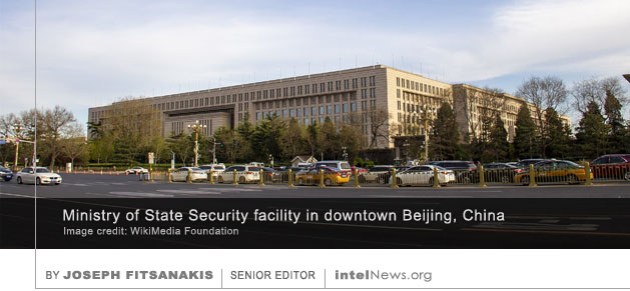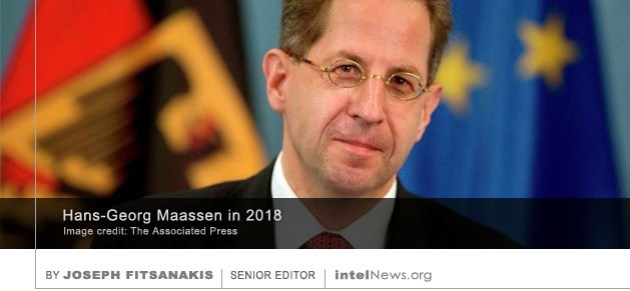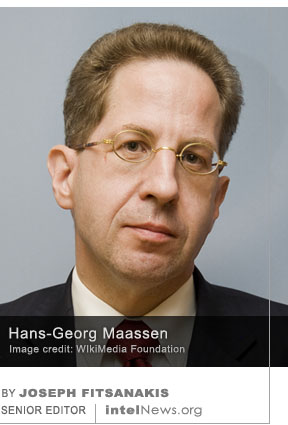Germany arrests sixth alleged spy in less than a month
April 29, 2024 1 Comment
 AUTHORITIES IN GERMANY HAVE arrested a sixth person in less than a month, in connection with three separate cases of espionage orchestrated by Russian or Chinese intelligence. Last Tuesday, police in the east German city of Dresden arrested an assistant to a leading politician of the far-right Alternative für Deutschland party (AfD). The assistant, who is a dual German-Chinese citizen, is accused of spying for Chinese intelligence, while the far-right politician who employed him is also being investigated, according to reports.
AUTHORITIES IN GERMANY HAVE arrested a sixth person in less than a month, in connection with three separate cases of espionage orchestrated by Russian or Chinese intelligence. Last Tuesday, police in the east German city of Dresden arrested an assistant to a leading politician of the far-right Alternative für Deutschland party (AfD). The assistant, who is a dual German-Chinese citizen, is accused of spying for Chinese intelligence, while the far-right politician who employed him is also being investigated, according to reports.
German news reports have identified the alleged spy as Jian Guo, 43, who lives in Dresden with his wife and children. Guo reportedly entered Germany as a student and stayed there after completing his studies, eventually becoming a naturalized German citizen. In 2019 he joined the staff of the office of Maximilian Krah, a senior AfD politician, who had recently been elected to the European Parliament.
According to the German prosecutor’s office, Guo had begun working for Chinese intelligence prior to joining Krah’s office as an assistant. At least some of his alleged espionage activities involved posing as a critic of the Chinese government and joining dissident groups of Chinese expatriates in Germany. He would then provide information about the activities of these groups to Chinese intelligence, according to his indictment. The latter described Guo’s intelligence activity as “an especially severe case” of espionage.
Meanwhile, German authorities are also reportedly investigating Krah himself over payments he allegedly received from pro-Chinese and pro-Russian individuals or groups. In a statement issued late last week, the AfD politician said he had been informed about Guo’s arrest from media reports and that he had no information about this case. Shortly after Krah’s statement, the AfD described Guo’s arrest as “highly disturbing” and added that party authorities would do “everything possible to aid the investigation”.
During the month of April alone, Germany has arrested no fewer than six individuals in a series of apparently unconnected cases of espionage, connected with Russia or China. Two of these individuals are German citizens of Russian origin, who were allegedly assisting Russian intelligence plan acts of sabotage against military installations located on German soil. Three other German citizens were allegedly planning to provide designs of advanced aircraft engines to Chinese intelligence officials.
► Author: Joseph Fitsanakis | Date: 29 April 2024 | Permalink
 The successor to Angela Merkel in the leadership of Germany’s ruling Christian Democratic Union (CDU) urged the removal from the party of the country’s former spy chief for expressing far-right views. But she later appeared to retract her comments. Hans-Georg Maassen led Germany’s Federal Office for the Protection of the Constitution (BfV) from August 2012 until his removal last September. His BfV career was abruptly
The successor to Angela Merkel in the leadership of Germany’s ruling Christian Democratic Union (CDU) urged the removal from the party of the country’s former spy chief for expressing far-right views. But she later appeared to retract her comments. Hans-Georg Maassen led Germany’s Federal Office for the Protection of the Constitution (BfV) from August 2012 until his removal last September. His BfV career was abruptly  Germany’s fragile ruling coalition continues to face strong criticism two days after removing the country’s domestic intelligence chief over concerns that he may harbor far-right sympathies. Hans-Georg Maassen, a career civil servant, led Germany’s Federal Office for the Protection of the Constitution (BfV) from August 2012 until his removal on Thursday of this week. His hasty removal from the BfV was caused by the so-called
Germany’s fragile ruling coalition continues to face strong criticism two days after removing the country’s domestic intelligence chief over concerns that he may harbor far-right sympathies. Hans-Georg Maassen, a career civil servant, led Germany’s Federal Office for the Protection of the Constitution (BfV) from August 2012 until his removal on Thursday of this week. His hasty removal from the BfV was caused by the so-called 





